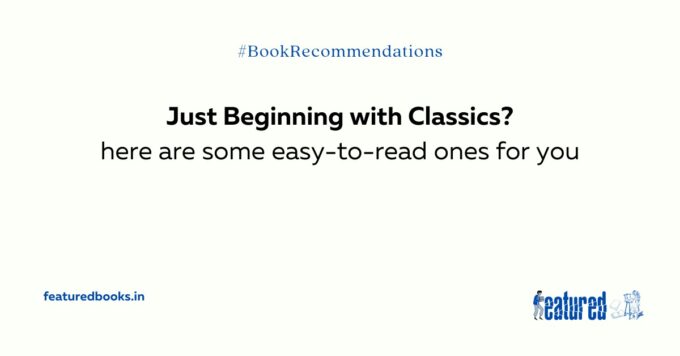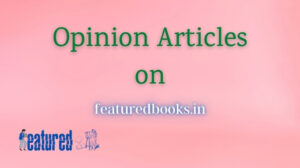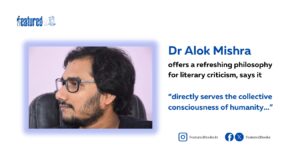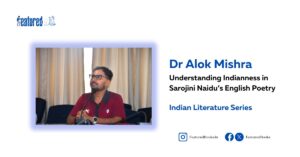Let’s be honest: the idea of reading “classic literature” can feel like being handed a 500-page brick with tiny font and told, “Enjoy!” For many young readers, diving into Tristram Shandy or Tom Jones right off the bat is like trying to run a marathon without ever jogging. It’s no wonder that so many people give up before they even start.
But here’s the secret: classics don’t have to be intimidating. In fact, some of them are just as engaging, funny, and thrilling as modern books. The trick is knowing where to begin.
If you’ve ever picked up a classic, struggled through two chapters, and then quietly slid it back onto the shelf (or worse, used it as a coaster), this guide is for you. We’re going to explore the best starter classics or the easy to read classics —books that are accessible, entertaining, and won’t make you feel like you’re decoding ancient scrolls.
Why Start with “Easy” Classics?
Before we get into recommendations, let’s address the big question: Why even bother with classics?
They’ve Stood the Test of Time – These books survived decades (or centuries) because they’re that good.
They Shape Modern Stories – Ever noticed how many movies, TV shows, and modern novels borrow from classics? Reading them helps you catch references everywhere.
They’re Surprisingly Relatable – Love, betrayal, ambition, revenge… human nature hasn’t changed much.
But here’s the catch: Not all classics are created equal. Some are dense, some are slow, and some require a dictionary to get through a single page. If you start with the wrong one, you might swear off classics forever.
That’s why we’re skipping the heavyweights (Moby Dick, Ulysses, War and Peace) and starting with books that feel more like a conversation than a lecture.
The Best Starter Classics for Beginners
1. The Strange Case of Dr. Jekyll and Mr. Hyde – Robert Louis Stevenson
Why it’s perfect for beginners:
Short (you can finish it in one sitting).
Fast-paced, almost like a thriller.
Explores a theme everyone understands: the duality of human nature.
This isn’t just a “classic.” It’s a gripping psychological horror story about a man with a terrifying secret. If you like dark, twisty tales, this is your gateway into classic lit.
2. The Adventures of Sherlock Holmes – Arthur Conan Doyle
Why it’s perfect for beginners:
Episodic (you can read one story at a time).
Sherlock is still the most iconic detective in fiction.
The mysteries are clever, funny, and never boring.
Think of these as the 19th-century version of a binge-worthy detective show. Each story is self-contained, so you don’t have to commit to a massive novel.
3. Pride and Prejudice – Jane Austen
Why it’s perfect for beginners:
Sharp, witty dialogue (Austen is funny).
Relatable characters (Lizzy Bennet is basically the original sarcastic heroine).
Romance, drama, and social commentary—it’s got everything.
If you think Austen is all about stiff manners and teacups, think again. This is a book about smart women navigating a world that underestimates them. Plus, Mr. Darcy is the blueprint for every brooding love interest ever written.
4. The Picture of Dorian Gray – Oscar Wilde
Why it’s perfect for beginners:
Dark, decadent, and full of scandal.
Wilde’s writing is incredibly quotable.
It’s about vanity, corruption, and the cost of eternal youth—timeless themes.
This book is like a gothic Instagram cautionary tale. If you love morally grey characters and philosophical questions wrapped in a creepy story, this is your match.
5. Frankenstein – Mary Shelley
Why it’s perfect for beginners:
More than just a “monster story”—it’s about ambition, loneliness, and humanity.
Surprisingly emotional (you’ll feel for the Creature).
Written by a teenager (yes, really), so it’s bold and imaginative.
Forget the green, bolt-necked movie version. The original Frankenstein is a tragic and thought-provoking novel that asks: Who is the real monster?
6. The Time Machine – H.G. Wells
Why it’s perfect for beginners:
Short and action-packed.
One of the first major sci-fi novels ever written.
Explores deep ideas (class divide, evolution) without being preachy.
If you love dystopian stories (Hunger Games, Divergent), this is where a lot of those ideas started. Plus, time travel never gets old.
7. Treasure Island – Robert Louis Stevenson
Why it’s perfect for beginners:
Pirates. Betrayal. Adventure. Need I say more?
The origin of classic pirate tropes (Long John Silver, “X marks the spot”).
Written for young readers, so the language is straightforward.
This is the ultimate swashbuckling tale. If you’ve ever dreamed of hidden treasure and high-seas drama, this is your book.
How to Actually Enjoy Reading Classics (Without Feeling Like It’s Homework)
Now that you’ve got some great starter books, here’s how to make the experience even better:
1. Don’t Be Afraid to Use Help
Watch an adaptation first – Sometimes seeing the story in a movie or TV form helps you visualise it.
Use modern translations and annotations – Some editions include footnotes that explain old phrases or references.
Listen to audiobooks – A great narrator can bring the text to life.
2. Read at Your Own Pace
You don’t have to finish a book if you’re not feeling it.
Short stories and novellas are great for testing the waters.
3. Join a Book Club or Online Discussion
Talking about classics with others makes them more fun.
Reddit, Goodreads, and BookTok have great communities.
Final Thought: Classics Are Just Old Bestsellers (Do you think so?)
The biggest myth about classics is that they’re “serious” or “boring.” But most of them were the blockbusters of their time—full of drama, romance, and wild plots.
The key is finding the ones that speak to you. Maybe you’ll love the dark humour of Oscar Wilde, the adventurous spirit of Treasure Island, or the sharp social commentary of Jane Austen.
So grab one of these beginner-friendly classics, settle in, and give it a shot. You might discover that the old masters knew how to tell a story better than anyone.
Happy reading! 📖✨
Chitra for Featured Books




